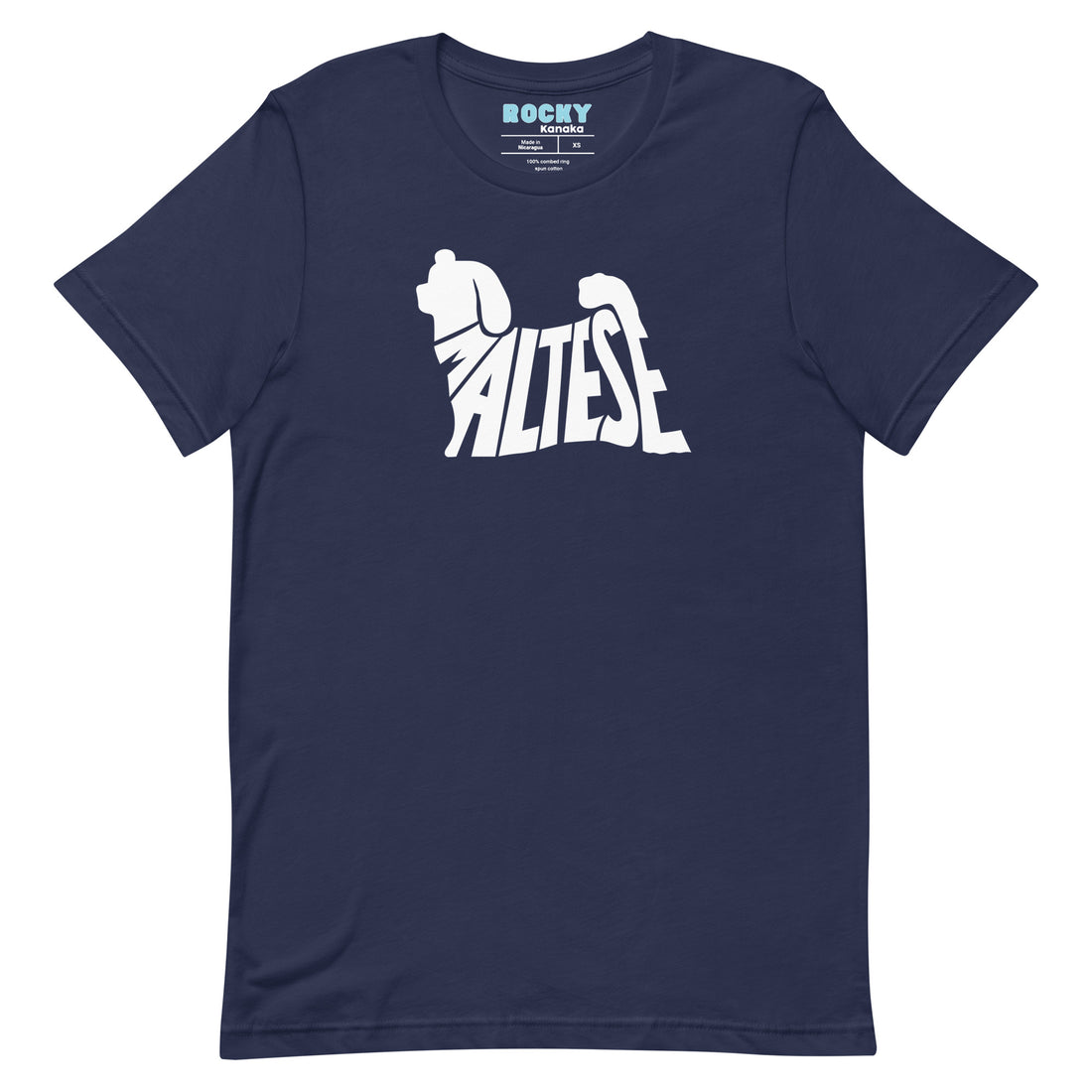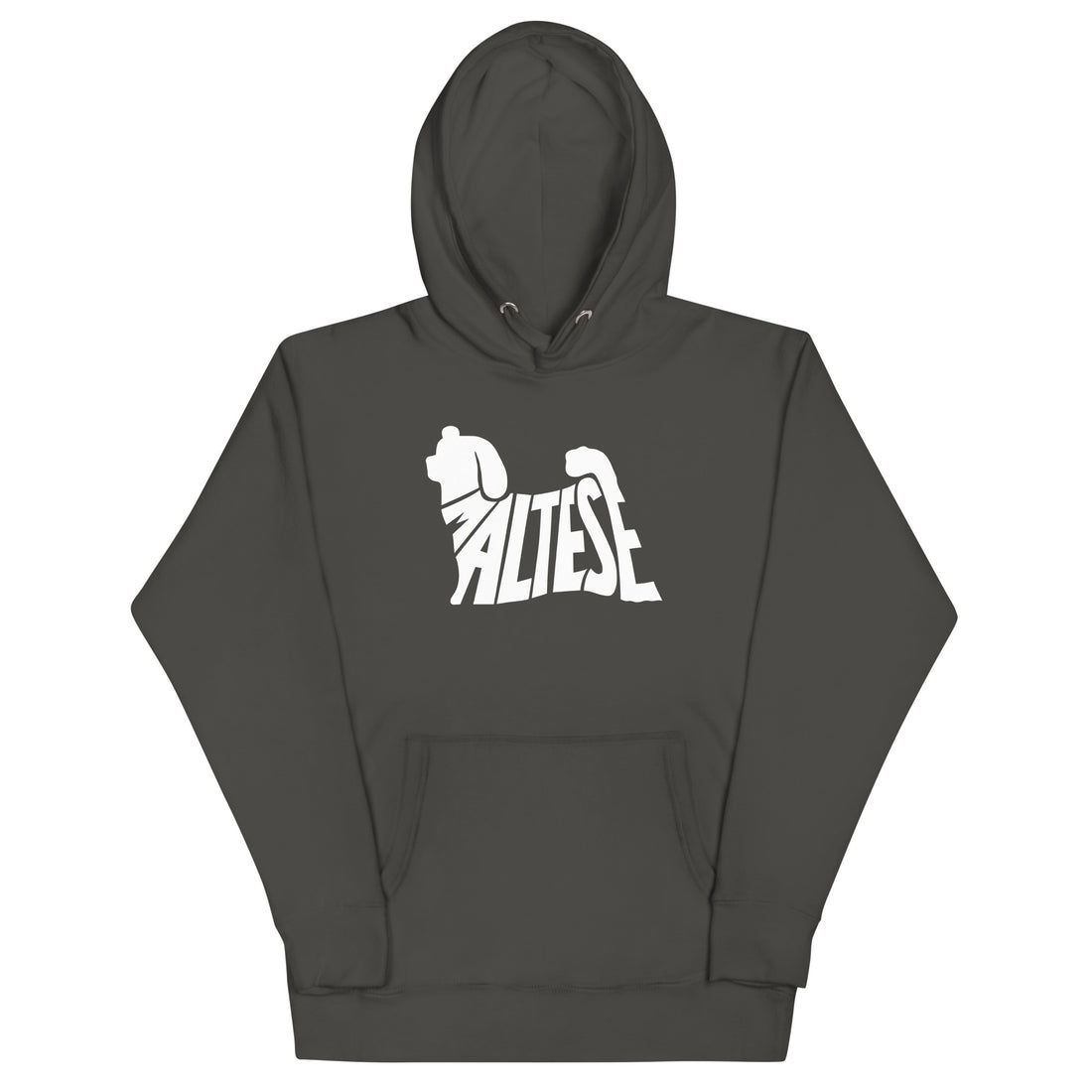Debunking the Myth – Are Maltese Dogs Truly Hypoallergenic?
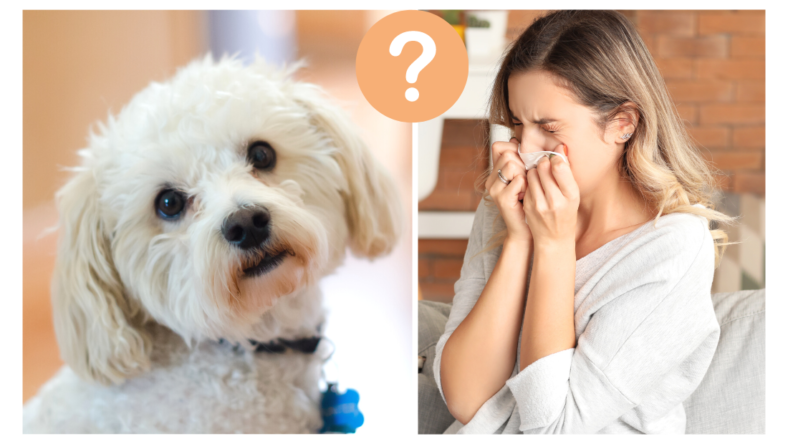
Maltese, a small dog breed known for its distinctive appearance and charming personality, is a popular choice among dog lovers. However, for individuals with allergies, the question of whether Maltese are hypoallergenic often arises. In this article, we will delve into the facts about Maltese and allergies, debunking myths, and providing insights into managing allergies in the context of owning a Maltese dog.
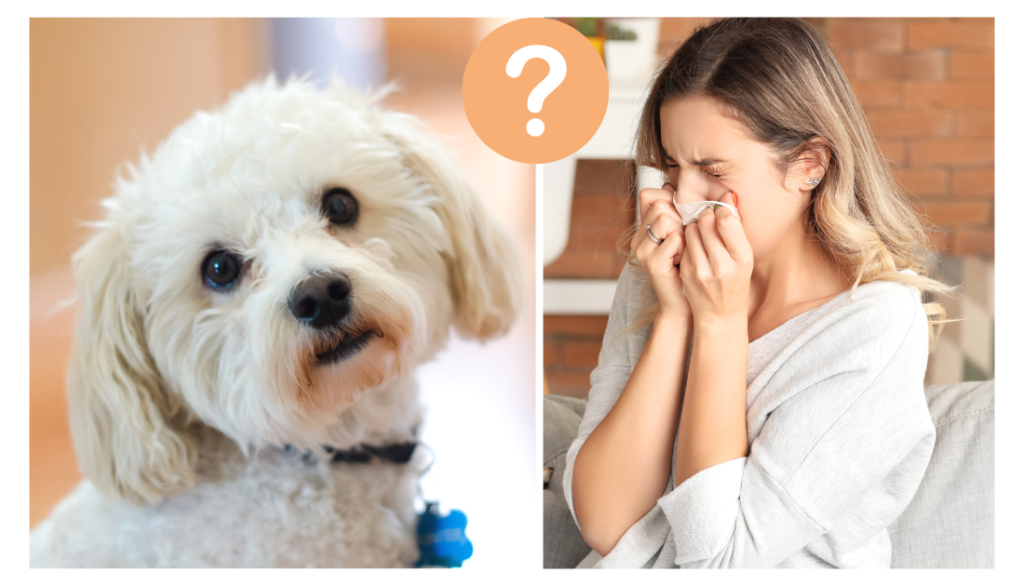
Maltese’s coats require regular grooming, including brushing, bathing, and trimming, to prevent matting and tangling, and to minimize shedding. However, even with meticulous grooming, Maltese still release a small amount of dander and hair into the environment, which can potentially trigger allergies in very sensitive individuals.
Pet Allergies are caused by allergens, which are proteins found in a pet’s skin cells, saliva, urine, and dander (tiny flakes of skin). When these allergens are released into the air and come into contact with a person’s skin, nose, or eyes, they can cause an allergic reaction. Despite their low-shedding coat, Maltese produce allergens just like any other dog breed, and they can still cause allergies in susceptible individuals.
So Are Maltese Hypoallergenic, Or Not?
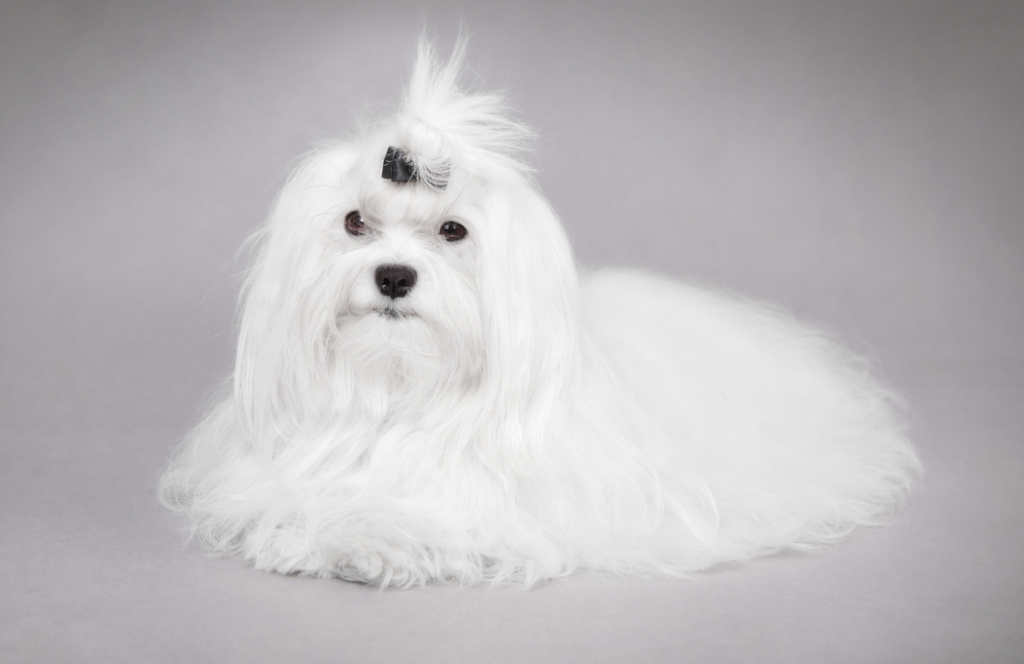
Yes, Maltese dogs are often considered hypoallergenic. Hypoallergenic refers to the likelihood of causing fewer allergies or less severe allergic reactions in individuals who are prone to allergies. While no dog breed is completely hypoallergenic, some breeds, including the Maltese, are known to produce fewer allergens compared to other breeds, making them a better option for people with allergies.
I have allergies and have owned 3 Maltese in my life and have never been allergic. I’m sure some people may be more sensitive than I am, but I tested as a level 4 on the allergy scale for dogs. I think that a Maltese is an ideal choice for those with allergies or sensitivities to dogs.
Maltese dogs have a single coat of hair that grows continuously, similar to human hair, instead of a double coat of fur like many other dog breeds. This characteristic can result in reduced shedding and fewer allergens being released into the air. Additionally, Maltese dogs have minimal dander, which is a common allergen found in pet hair, skin cells, and saliva.
It’s important to note that allergies are highly individual, and some people may be more sensitive to pet allergens than others. Factors such as genetics, immune system, and overall health can influence the severity of allergic reactions. Therefore, while some Maltese owners may not experience allergies, others may have allergic reactions even with a well-groomed Maltese.
Debunking Myths about Hypoallergenic Breeds
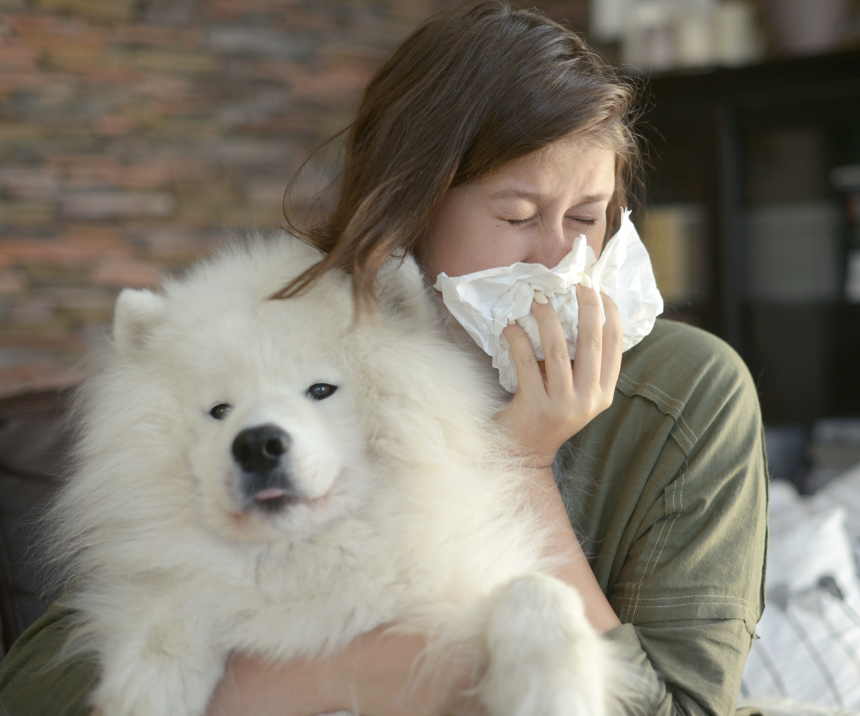
The term “hypoallergenic” is often used to describe dog breeds that are believed to produce fewer allergens and, therefore, are considered more suitable for individuals with allergies. However, it’s important to understand that no dog breed is completely hypoallergenic. Even breeds that are labeled as hypoallergenic, such as Poodle, Bichon Frise, Maltese, and Yorkshire Terrier, can still produce allergens and cause allergies in sensitive individuals.
Best Supplement To Reduce Shedding
The AKC Does Not Recognize The Term Hypoallergenic
The American Kennel Club (AKC), a reputable organization that recognizes and registers purebred dogs, does not recognize the term “hypoallergenic” and does not classify any breed as hypoallergenic. The AKC acknowledges that all dogs produce allergens, and individual reactions to different breeds can vary widely. Therefore, it’s crucial to understand that the term hypoallergenic can be misleading, and careful consideration should be given to individual factors when choosing a dog breed for allergy-prone individuals.
Managing Allergies with a Maltese
If you are considering getting a Maltese and have allergies, there are several steps you can take to minimize allergen exposure and manage your allergies:
1. Regular grooming
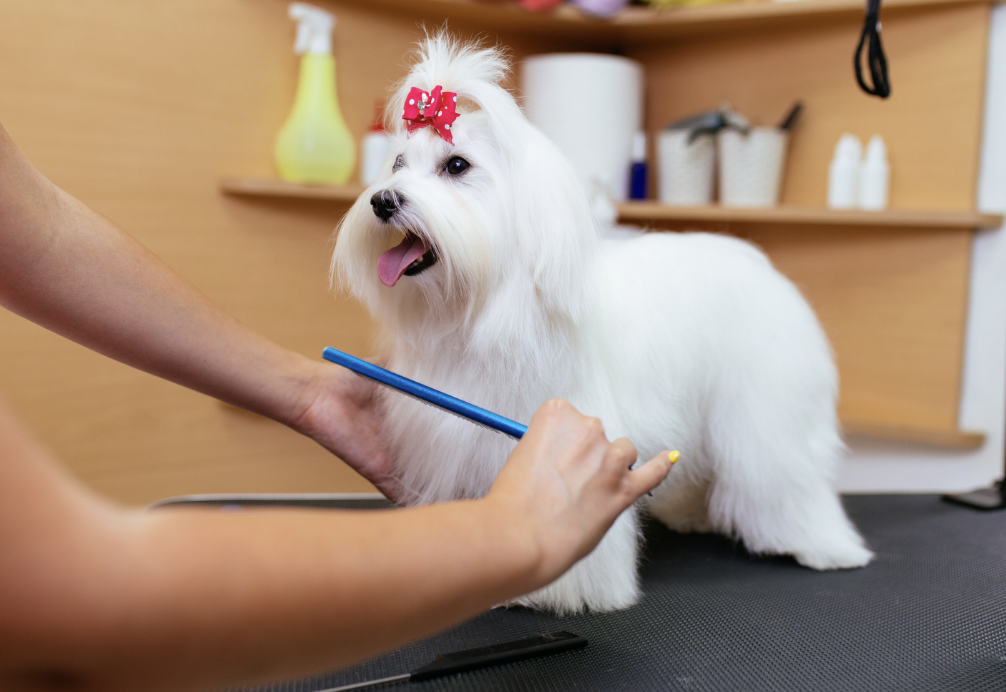
As mentioned earlier, regular grooming is crucial in managing allergies with a Maltese. Brushing your Maltese’s coat regularly helps to remove loose hair and prevent matting, which can reduce the amount of dander and allergens in their coat and environment. Additionally, frequent bathing and trimming can also help minimize shedding.
2. Cleaning your home
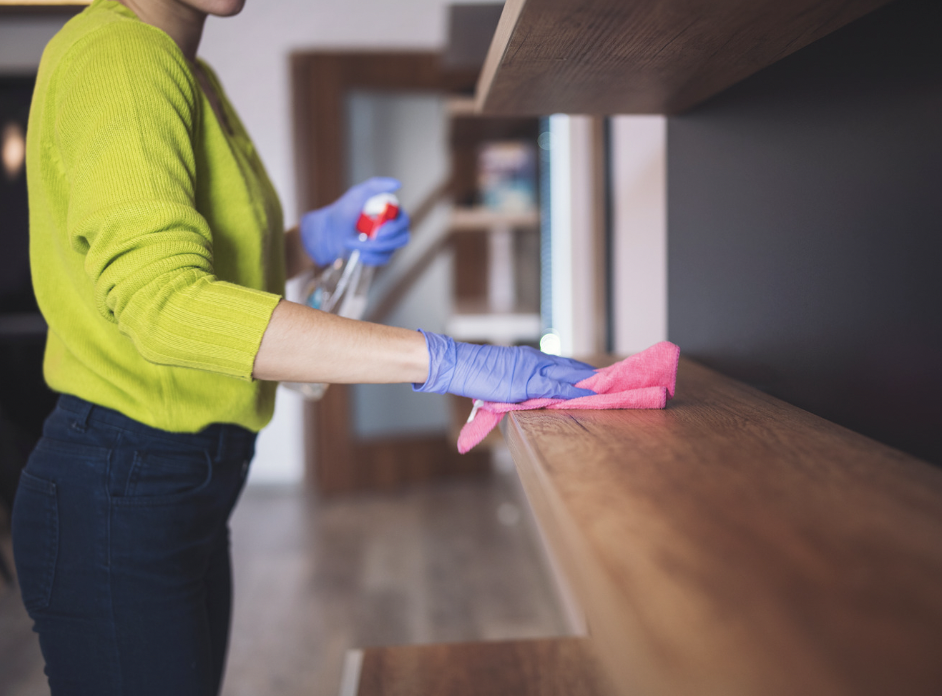
Keeping your home clean and free from allergens is essential in managing allergies with a Maltese. Vacuum your home frequently with a vacuum cleaner that has a HEPA filter to trap pet dander and hair. Wash your Maltese’s bedding, toys, and other belongings regularly to remove any accumulated dander. Consider using air purifiers with HEPA filters in your home to reduce airborne allergens.
3. Personal hygiene
Washing your hands thoroughly with soap and water after handling your Maltese can help remove allergens from your skin and prevent them from spreading to your face, eyes, and nose. Avoid touching your face with your hands, especially if you have been in close contact with your Maltese. Changing your clothes after playing or cuddling with your Maltese can also help minimize allergen exposure.
4. Allergy medication
Over-the-counter or prescribed allergy medications, such as antihistamines, decongestants, and nasal corticosteroids, can help manage allergy symptoms, such as sneezing, itching, and congestion. Consult with your healthcare provider to determine the appropriate medication and dosage for your specific allergies.
5. Pet-free zones
Designating certain areas in your home as pet-free zones, such as your bedroom and any other rooms where you spend a significant amount of time, can provide a sanctuary free from allergens. Keeping your Maltese out of these designated areas can help reduce allergen exposure while you rest or relax.
6. Vacuum… A Lot!
Vacuum carpets, floors, and furniture with a vacuum cleaner equipped with a HEPA filter can effectively trap pet allergens. Washing your Maltese’s bedding, toys, and other belongings regularly can also help minimize allergen buildup.
7. Air purifiers
Investing in a high-quality air purifier with a HEPA filter can help filter out allergens from the air inside your home, including pet dander and hair. Place the air purifier in the rooms where your Maltese spends the most time, such as the living room or bedroom, to help create an allergen-free zone.
8. Allergy Shots
In some cases, allergy shots, also known as immunotherapy, may be recommended by your healthcare provider to help desensitize your immune system to allergens and reduce the severity of allergic reactions.
9. Don’t sleep with your dog
If you have allergies, it is generally not recommended to sleep with your dog, including a Maltese or Shih Poo, or any other pet that may trigger your allergies. While it may be tempting to snuggle up with your furry friend, sleeping with your dog can increase your exposure to allergens, including pet dander, saliva, and urine, which can potentially exacerbate your allergies. You should also Wash your bedding, including sheets, pillowcases, and blankets, regularly in hot water to remove any pet dander that may have accumulated.
Frequently Asked Questions (FAQs):
Are Maltese hypoallergenic?
Yes and No. They do shed, albeit to a lesser extent compared to some other breeds, and produce allergens that can potentially trigger allergies in sensitive individuals. But compared to other dogs they are about as hypoallergenic as you can get.
Can I still own a Maltese if I have allergies?
Yes, it is possible to own a Maltese if you have allergies, but it requires careful management of allergen exposure through regular grooming, cleaning, and other measures to minimize allergen buildup in the environment.
Are there any hypoallergenic dog breeds?
While some dog breeds, such as Poodle, Bichon Frise, and Yorkshire Terrier, are often labeled as hypoallergenic, it’s important to understand that no dog breed is completely hypoallergenic. All dogs produce allergens, and individual reactions to different breeds can vary widely.
Can grooming help reduce allergen exposure in Maltese?
Yes, regular grooming, including brushing, bathing, and trimming, can help reduce the amount of dander and hair in a Maltese’s coat and environment, which can minimize allergen exposure.
What other measures can I take to manage allergies with a Maltese?
In addition to regular grooming, other measures to manage allergies with a Maltese include frequent cleaning of the environment, using air purifiers with HEPA filters, practicing good personal hygiene, and consulting with your healthcare provider or allergist for appropriate medication or allergy shots.
What other dog breeds are hypoallergenic?
Some other dog breeds that are often considered hypoallergenic include the Poodle, Bichon Frise, and Yorkshire Terrier. However, it’s important to note that no dog breed is completely hypoallergenic, and individual reactions to different breeds can vary.
How does a Maltese compare to a Portuguese Water Dog in terms of allergen production?
Both Malteses and Portuguese Water Dogs are single coated dogs and typically low-shedding.
Can I reduce allergen exposure in my Maltese by getting a Shih Poo instead?
Shih Poos are a crossbreed between a Maltese and a Poodle, and they are often marketed as hypoallergenic. While Shih Poos may inherit some low-shedding traits from the Poodle parent, there are no guarantees that they will be completely hypoallergenic. It’s best to spend time with a Shih Poo and consider individual factors such as coat type and grooming needs before making a decision based on allergen exposure.
Should I consider pet insurance for my Maltese?
Pet insurance can provide financial protection in case of unexpected medical expenses for your Maltese, just like with any other dog breed. However, it’s important to research different pet insurance providers, coverage options, and costs to find a plan that best fits your Maltese’s specific needs and your budget.
Are there any other small dog breeds that are suitable for someone with allergies?
Yes, there are several other small dog breeds that are often considered suitable for individuals with allergies. Some examples include the Bichon Frise, Maltese, and Yorkshire Terrier. However, it’s important to remember that no dog breed is completely hypoallergenic, and individual reactions can vary. Regular grooming, cleaning, and managing allergen exposure are still important considerations for any small dog breed, including Malteses.
How can I minimize loose hair and dander in my Maltese’s coat?
Regular grooming practices can help minimize loose hair and dander in your Maltese’s coat. This includes brushing your Maltese’s coat at least a few times a week to remove loose hair and prevent matting, as well as regular bathing to keep the coat clean and reduce dander buildup. Trimming the coat regularly can also help manage shedding and dander production.
How often should I groom my Maltese to manage allergen exposure?
Grooming requirements may vary depending on your Maltese’s coat type and personal preferences, but generally, Malteses should be groomed at least every 4-6 weeks. This includes brushing, bathing, and trimming the coat to manage shedding and dander production. Regular grooming, along with other measures like cleaning the environment and practicing good personal hygiene,
can help reduce allergen exposure and minimize potential allergic reactions.
Are there any specific grooming techniques that can help reduce allergen production in my Maltese’s coat?
es, there are some specific grooming techniques that can help reduce allergen production in your Maltese’s coat. One technique is to use a slicker brush or a comb with closely spaced teeth to remove loose hair and prevent matting. This can help reduce the amount of hair that falls out and ultimately reduces the amount of dander in the environment. Additionally, regular baths with a mild dog shampoo can help keep the coat clean and reduce dander buildup.
Can I prevent allergies by getting a Maltese puppy instead of an adult dog?
While getting a Maltese puppy may reduce your exposure to allergens initially, it does not guarantee that you won’t develop allergies in the future. Allergies can develop over time as your body becomes sensitized to allergens. It’s important to spend time with adult Malteses before making a decision, as allergen levels may vary even among puppies of the same breed.
Do Malteses require frequent visits to a professional groomer?
Malteses do require regular grooming, including brushing, bathing, and coat trimming. While some Maltese owners choose to groom their dogs at home, many prefer to take their Malteses to a professional groomer. A professional groomer can help ensure that your Maltese’s coat is properly maintained, reducing the risk of matting, dander buildup, and potential allergic reactions.
Can I manage allergies by keeping my Maltese’s coat short?
Keeping your Maltese’s coat short can help manage allergen production to some extent, as it reduces the amount of loose hair and dander that may be shed. However, it’s important to note that even with a short coat, Malteses still produce allergens and regular grooming and cleaning are still necessary to reduce allergen exposure.
Are there any specific environmental factors I should consider to manage allergies in my Maltese?
Yes, managing the environment can be an important aspect of managing allergies in your Maltese. Some environmental factors to consider include regular cleaning of your home, including vacuuming carpets and upholstery, using air purifiers with HEPA filters, washing your Maltese’s bedding regularly, and keeping your home well-ventilated. Additionally, minimizing exposure to outdoor allergens, such as pollen and mold, can also help reduce potential allergen triggers for your Maltese.
Is pet insurance necessary for my Maltese?
While pet insurance is not mandatory, it is highly recommended for all dog owners, including Maltese owners. Malteses, like any other breed, can face potential health issues, such as dental problems, allergies, patellar luxation, and respiratory issues. Pet insurance can help cover unexpected medical expenses, ensuring that your Maltese receives proper veterinary care without causing financial strain.
Can I train my Maltese to reduce allergen production?
While you cannot train your Maltese to reduce allergen production, you can train them to tolerate grooming and regular cleaning, which can help manage allergen exposure. Training your Maltese to be comfortable with brushing, bathing, and coat trimming from a young age can make the grooming process easier and more effective in reducing loose hair and dander. Regular grooming sessions can also help you bond with your Maltese and ensure their overall health and well-being.
Can I sleep with my dog if I have allergies
If you have allergies, it is important to create an allergen-free sleeping environment to help minimize your exposure to potential triggers. Designate your bedroom as a pet-free zone to create a dander-free sleeping environment. This means not allowing your dog, or any other pets, to sleep on your bed or spend prolonged periods of time in your bedroom.
Related Articles:
- Top 3 Dog Foods for Maltese According to An Expert
- 7 Best Toys For Maltese, According To An Expert
- Are Shih Tzu Hypoallergenic? Debunking Myths and Understanding Pet Allergies
- Are Goldendoodles Hypoallergenic? How to Manage Goldendoodle Allergies

